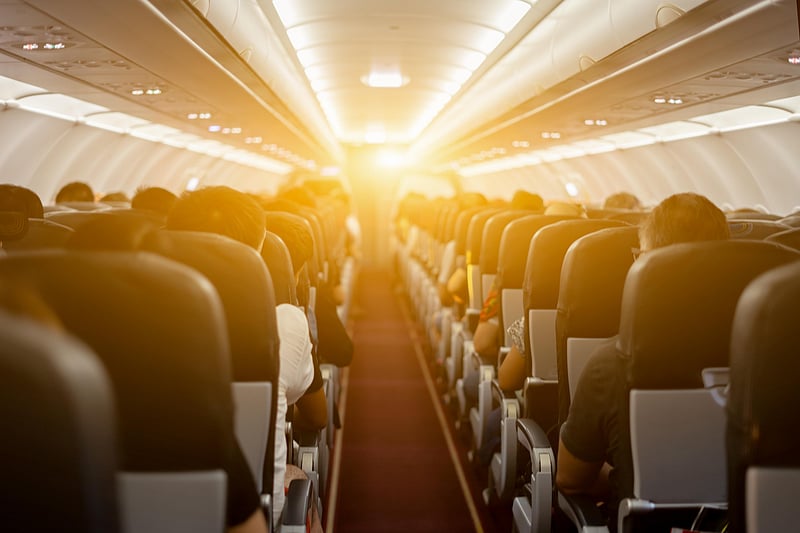Recursos del Paciente
Manténgase sano!
U.S. to Require Negative COVID Test For Chinese Visitor Entry
- December 29, 2022
- Robin Foster and Cara Murez
- HealthDay Reporter

All travelers flying from China to the United States will soon be required to produce a negative COVID test or show proof of recovery if they've had a recent COVID infection, U.S. health officials announced Wednesday.
The new rule, set to go into effect on Jan. 5, was created in response to a surge in COVID cases in China and the "lack of adequate and transparent epidemiological and viral genomic sequence data being reported from"that country, the U.S. Centers of Disease Control and Prevention said in an agency news release.
"What we want to avoid is having a variant enter into the U.S. and spread like we saw with Delta or Omicron,"Matthew Binnicker, director of clinical virology at the Mayo Clinic in Rochester, Minn., told the Associated Press.
The new requirement applies to people aged 2 and older flying from China and the Special Administrative Regions of Hong Kong and Macau. It also applies to those who've been in China within the past 10 days and are flying to the United States through Incheon International Airport in South Korea, Toronto Pearson International Airport and Vancouver International Airport, both in Canada. Those three airports account for the majority of plane passenger traffic from China and its surrounding regions, the CDC noted.
Passengers will need to supply a negative test taken no more than two days prior to their flight. Those who tested positive more than 10 days before the flight can provide documentation of recovery instead of a negative test, the CDC said.
Airlines are required to confirm the recovery documents and negative tests.
The CDC noted that the new requirement is designed to slow the spread of the virus and its myriad variants in the United States.
"Variants of the SARS-CoV-2 virus continue to emerge in countries around the world,"the CDC said. "However, reduced testing and case reporting in the PRC [People's Republic of China] and minimal sharing of viral genomic sequence data could delay the identification of new variants of concern if they arise."
The COVID tests can be a PCR test or an antigen self-test administered and monitored by a telehealth service or a licensed provider and authorized by the U.S. Food and Drug Administration or the relevant national authority, according to the CDC.
The CDC is also expanding the Traveler-based Genomic Surveillance program (TGS). This voluntary program, which serves as an early warning system for new variants, includes collecting anonymous nasal swabs from arriving international travelers on selected flights.
The program is adding two more airports (Los Angeles and Seattle) to its testing roster, bringing the total number of airports included to seven. The number of weekly flights covered by the early testing will be roughly 500 from at least 30 countries across the globe, including 290 weekly flights from China and surrounding areas, the CDC said.
Past TGS successes include detecting two Omicron subvariants, BA.2 and BA.3, and reporting them to a global database weeks before they were reported elsewhere, according to the CDC.
"The approach laid out, when layered with existing CDC recommendations such as masking during travel, self-monitoring for symptoms and testing for three days after arrival from international travel, will help make travel safer, healthier and more responsible by reducing spread on planes, in airports and at destinations and to be on alert for any potential variants emerging,"the CDC added.
More information
The World Health Organization has more on COVID-19.
SOURCE: U.S. Centers for Disease Control and Prevention, news release, Dec. 28, 2022

